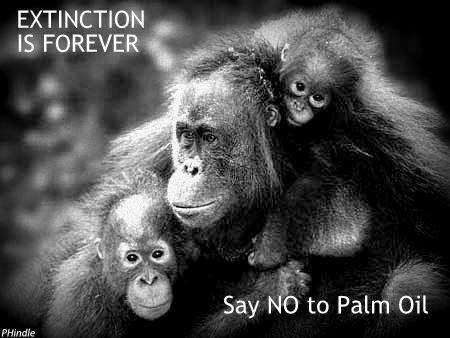In 2004 The World Wildlife Federation and teamed up with the Palm Oil Industry and launched RSPO (Roundtable on Sustainable Palm Oil). Many manufacturers especially small companies proudly state they are using sustainable Palm Oil, however, this is not as benign as many of them think because the rules are riddled with loopholes.
The environmental groups Greenpeace International and Wetlands International argue that such loopholes allows palm oil firms to join RSPO and improve their image despite the fact that very little palm oil has yet been produced according to the sustainability criteria. And The Jakarta-based Center for Orangutan Protection has directly opposed the certification scheme. The group said last year that it found two RSPO member companies clear-cutting forests that were home to orangutans, sun bears, and Borneo gibbons. "It has been six years after RSPO was put into operation but forests are still cleared and orangutans are continually killed," said Novi Hardianto, the Center's habitat program coordinator, in a press release. "All criteria on sustainable palm oil and certification process are merely public lies."
Because of it's versatility, Palm oil is used in so many products, ranging from margarine, cereals, sweets and baked goods, to soaps, washing powders and cosmetics. (If you are a vegan and use products by Earth Balance beware that they use Palm Oil in many of their products.) And you have to practice due diligence if this concerns you, because often times it is listed as an ingredient on product labels, with the term ‘vegetable oil’ often being used instead.
So, please practice consumer awareness and I hope that the next time you are shopping think about who and what will be affected by that product.



No comments:
Post a Comment